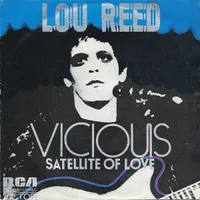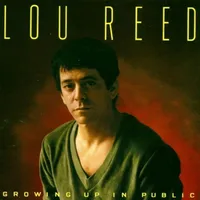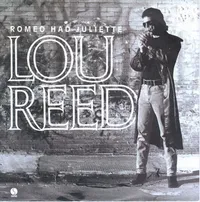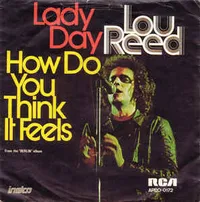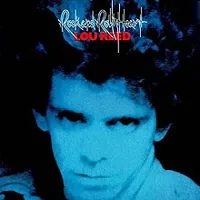"Mercurial, contradictory, vaulting from throwaway garage-candy to high art concepts and back again": The 20 best solo songs by Lou Reed
Lou Reed's body of work grew from uncertain beginnings through a prolific and wildly diverse 70s surge and a late 80s revival
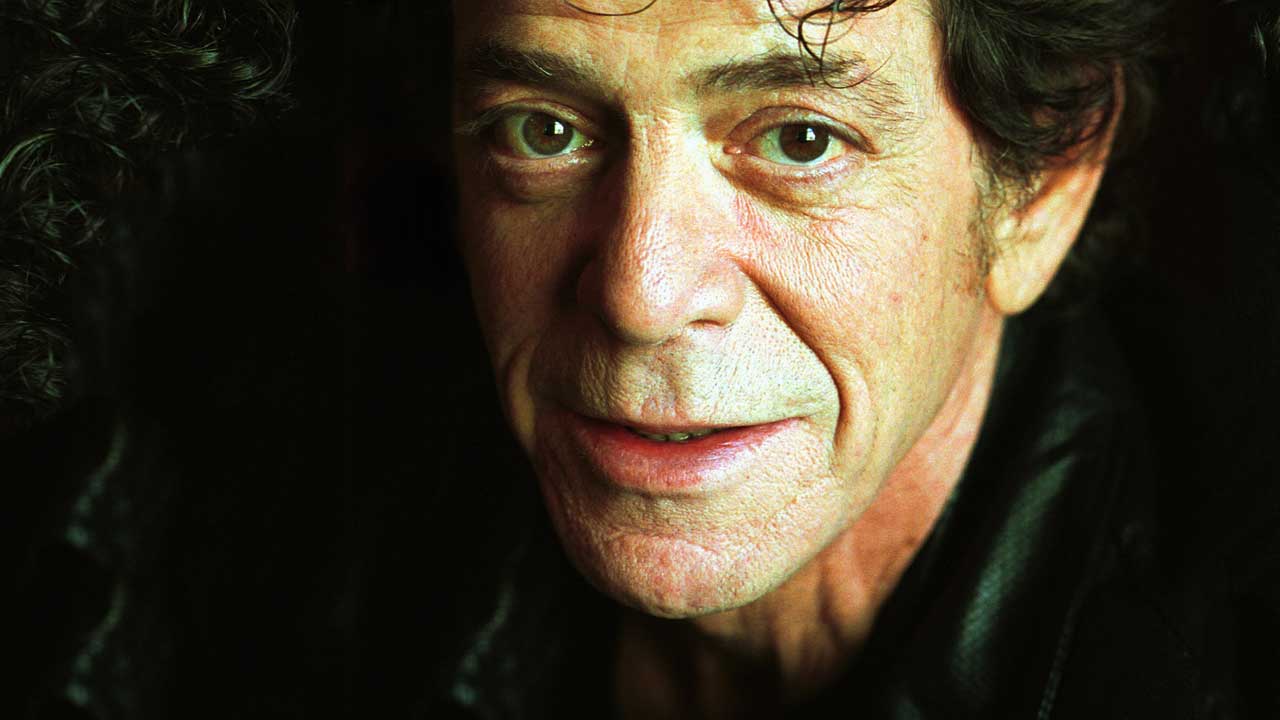
Lou Reed famously changed his mind, frequently, regarding which of his songs he liked and which he loathed. Getting mildly annoyed with me in 2004, as he tended to do – and not, in fairness, with me alone – he told me, “Follow the dotted line. Look, put all the songs together and it’s certainly an autobiography. It’s just not necessarily mine. I write about other people, tell stories, always did.
"But listen – I loved every last one of them. Every single second of every last one, OK?”
After the dissolution of The Velvet Underground, Reed's body of work grew from uncertain beginnings through a prolific and wildly diverse 70s surge – for this writer, his golden age – and on to a late 80s revival of inspiration.
There were many turkeys along the way, as well as many triumphs. We can’t squeeze everything into this operation, so while each have their advocates, there’s nothing from those fire-starters Metal Machine Music or Lulu. There’s no The Original Wrapper. And technically Sweet Jane was a Velvets song, before you start.
Mercurial, contradictory, vaulting from throwaway garage-candy to high art concepts and back again, Lou Reed’s enthralling, provocative solo catalogue remains, more than a decade after his death – Oct 27, 2013 – aged 71, as fascinating, frustrating and full-on as the man himself.

20. Magic And Loss (Summation) (Magic And Loss, 1992)
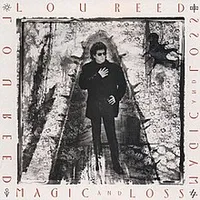
Lou’s Magic And Loss album, which he compared to Beethoven’s Fifth, was a set of buttoned-up ponderings on cancer and death which came dressed as Lofty Art: audiences who came to see him play it were barred from drinking or talking. Some believed his hype: weirdly it’s his highest-charting UK album (no.6). But it was no Berlin, bar this slow-burn finale about passing through fire.
19. Tell It To Your Heart (Mistrial, 1986)
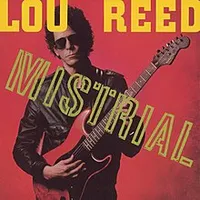
“When I was thirty my attitude was bad”. Yes, and your records were good. Mistrial is, apart from the hilarious The Original Wrapper, the sound of a forty-something man yelling at the telly from the sofa (Video Violence), and even Reed later bemoaned the production. This closing curveball, where Lou mistakes a film set for a UFO, carried a sly hint of the ghost of Transformer.
18. Set The Twilight Reeling (Set The Twilight Reeling, 1996)
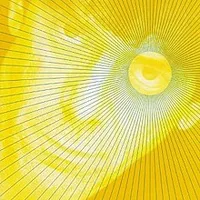
After a run of painfully worthy, hark-at-me I’m-so-profound albums, it was a relief and release to hear Lou crank up the guitars again, even if it meant his interviews became yawnsome drones about amplifiers and studio technology. It’s full of clumsy poetry, but this attempt to echo Dylan Thomas’ “Do not go gentle” does climax with a flare of the old heat.
17. The Gun (The Blue Mask, 1982)
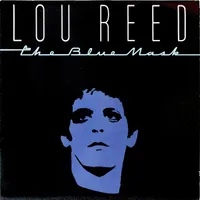
The Blue Mask marked a new chapter, with a new, often loud guitar band. But its best moments involve restrained musical subtlety. Stand-out The Gun has that, but also has Reed’s sinister, deadpan narration covering violence, intimidation, home invasion, possibly rape. It’s genuinely scary, reminding us that Reed had the genius to make a track haunt your psyche.
16. Vicious (Transformer, 1972)
Transformer’s nursery rhymes from Purgatory made Lou a strange kind of pop star, and its opening simple-but-great guitar riff set free his new persona. With lines inspired by Warhol ('hit me with a flower') and Mick Ronson restraining himself until the fade, it’s a great “hate song” despite David Bowie’s production leaking much of its power.
15. How Do You Speak To An Angel (Growing Up In Public, 1980)
On the witty, intricately arranged Growing Up In Public, Reed takes one last long hard look at his various personalities before hitting forty. 'I’m so damned sane', he said. This pomp-rock opener, all piano pirouettes and dovetailed dynamics, a capella blurts and handclaps, borders on Queen. Lou gives it conviction, asking how he’s supposed to talk to pretty girls when his father was “weak” and “simpering”.
14. Romeo Had Juliette (New York, 1989)
Warhol died, Nico died, but Reed somehow pulled himself out of the creative doldrums to deliver his most acclaimed album in many years, New York: so good he named it once. Its “fierce poetic journalism” (Rolling Stone) now called out, instead of wallowing in, urban squalor. Here he chronicles the decaying ideals of his beloved city as it sinks and burns like the fall of Rome.
13. Kicks (Coney Island Baby, 1976)
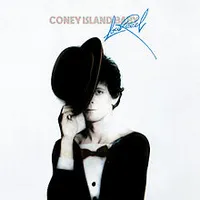
It’s emblematic of Reed’s career that as many fans think Coney Island Baby is a flaccid filler as rate it as one of his strongest. Following Metal Machine Music with a tender, vulnerable pastiche of soul and doo-wop had everyone confused. Yet its mellow mood is broken by the incongruous, visceral fusion of words, music, muttering voices and jolting sounds which constitute Kicks. It’s as if Reed’s dark side is banging on the closet door, demanding to be let out. Sex, blood and adrenalin: it’s intense.
12. Ennui (Sally Can’t Dance, 1974)
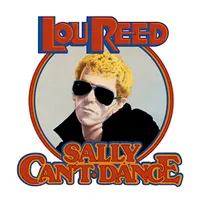
Reed claimed to hate Sally Can’t Dance (his only US top ten album), but it’s rich with wry asides. Ennui, all but hidden away, is one of his frequent accidental not-trying-too-hard flashes of genius. It floats on a sullen mood, his voice so low it rumbles as he, cynical but arch, advises, 'Pick up the pieces of your life/maybe someday you’ll have a wife'. Then he adds, 'And alimony'. That punchline’s so unexpected that you laugh as you reel. “It’s the track most people skip, I guess”, said Lou. “It must be; it’s the one I like”.
11. Disco Mystic (The Bells, 1979)
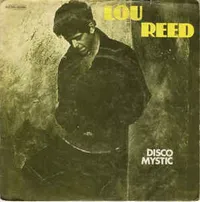
“If you can’t play rock and you can’t play jazz”, declared Lou, “put the two together and you’ve really got something”. The Bells is a bizarre, bipolar mix of experiments in binaural sound and so-dumb-it’s-smart pop, as if he’d noticed Bowie’s Berlin wall-demolishing and fancied some of that. Hated by punk purists at the time, “proof” to them that Reed had “lost it”, Disco Mystic is white funk if you ran it through a photocopier fifty times then drained its blood then got an inauthenticity expert to triple-check it was fully inauthentic. Pastiche? Homage? It’s stupidly, brilliantly funky.
10. How Do You Think It Feels (Berlin, 1973)
Before Side 2 of Berlin gets really dark, Side 1 is merely very dark indeed. This straddles the line between autobiography and fiction ('speeding and lonely'), with Reed’s phrasing urgent yet studied. Bob Ezrin lets Alice Cooper’s guitarists fully let rip only once the story’s told. A tangible plea for a reprieve from the horrors of existence and making love by proxy. The album’s most upbeat track, then.
9. She’s My Best Friend (Coney Island Baby, 1976)

You could argue the case for A Gift as being one of Coney Island Baby’s highlights – “it’s so funny”, said Lou – but this old Velvets draft from 1968 is updated with terrific feel, for which one-off producer Godfrey Diamond never got due credit. An exquisite surge of rhythm and lead guitars mesh with Bowie-influenced call-and-response “la la la”s, and Reed gauges his vocal to build from confident to pleading. Either his most sincere or artificial love song.
8. Street Hassle (Street Hassle, 1978)
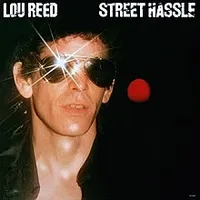
Part seedy punk, part cello-led rock opera, Street Hassle was, hoped Reed, a cross between “Burroughs, Selby, Chandler, Dostoevsky and rock’n’roll. Dirty mainstream snot”. The 11-minute, three-movement title track sees those looped cellos circling like vultures as Lou tells a graphic (even by his standards) tale of O.D.s, “little girls” and “bad shit”. And ultimately, “bad luck”. Probably the eeriest thing Bruce Springsteen has ever anonymously guested on.
7. Temporary Thing (Rock And Roll Heart, 1976)
Rock And Roll Heart, with Reed producing and playing all the guitars, was a confused response to CBGB punk, which he took a while to grasp. “I’m too literate to be into punk rock”. It leaps between fiery riffs and self-parodying neo-jazz. Just when you’re boxing it off, he pulls out this moody, wilfully repetitive showstopper, a love-hate song, possibly to drugs, which feels clammy, grubby – you can smell it in your hair the next day. It’s trashy, it’s melodramatic, it’s Reed in excelsis.
6. Walk On The Wild Side (Transformer, 1972)
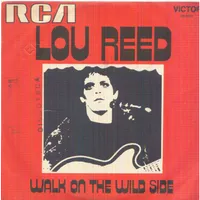
Yes of course this should be number one… but we’re non-mainstream, hardcore obsessive fans here, right? And if you’re not being perverse and contrary, you’re not doing Lou Reed right. Whether Lou liked it or not – and he argued both sides depending on that day’s mood swings – it’s the song which made his post-Velvets name and by which the world at large remembers him. He didn’t even think it was a single. Inspired by Nelson Algren and the colourful characters and pansexual “superstars” he’d met at The Factory, its atmosphere, created by Herbie Flowers’ two-note bass slide, The Thunder Thighs’ “doo da doo”s and baritone sax from Ronnie Ross (Bowie’s sax teacher) is immortal. Its purring sarcasm transformed his career.
5. The Bells (The Bells, 1979)
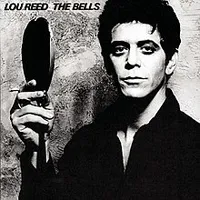
Yep, we’re *that* hardcore obsessive. Recorded in Germany, the left-handed jazz-rock of The Bells climaxes with this noir nine-minute electronic drone, punctuated with Don Cherry’s wailing tributes to Ornette Coleman and semi-audible whispers and prayers. At the last, Reed’s chipped voice breaks in, spontaneously reciting the story of a Broadway actor falling in ecstasy from a rooftop to his death. “The whole thing is a mood piece, supposed to cause an emotion”, he explained. It does. Not an easy listen, it’s inexplicably profoundly affecting.
4. Satellite Of Love (Transformer, 1972)
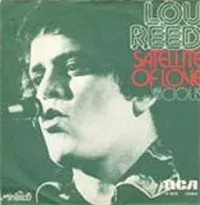
It had been demoed by The Velvets in the Loaded era, but not with this level of grace and grandeur. The Bowie-Ronson arrangement is redolent of Drive-In Saturday, with the piano flourishing in all the right places and the backing vocals, finger clicks and handclaps extracting the pop from the pomp – Bowie tried multiple other vocal fills before telling Ken Scott this album should be about Lou, not him. The lyric’s main thrust seems to express a comatose wonderment at technology, with Reed as the missing link between Warhol’s screen-entranced passive persona and Bowie as Thomas Jerome Newton.
3. Perfect Day (Transformer, 1972)
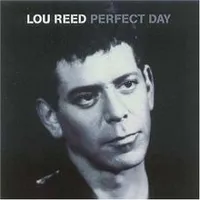
It’s frequently tricky to deduce whether Lou’s being open-hearted or slyly sneering. Is Perfect Day a transcendent, vulnerable love song or a subversive paean to smack? Of course, it’s been taken out of his hands since – not least, insanely, by the likes of Boyzone and Pavarotti on the BBC’s chart-topping 1997 Children In Need interpretation. Yet even upon Transformer’s release, most listeners heard genuine romance: sangria in the park, feeding animals in the zoo and catching a movie worked as sincerity incarnate. We thought we were someone else. Someone good.
2. Sad Song (Berlin, 1973)
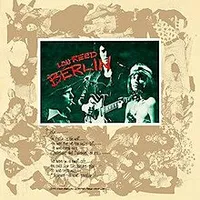
Berlin – the most gothic thing ever made in Willesden – works best as a whole, especially the slide into unrelenting sorrow of its second half. Yet the great concept albums – “a film for the ears”, producer Bob Ezrin called this – demand a big pay-off finish, and boy does Berlin bring that home. Sad Song is bombastic, but Reed’s forlorn, muted voice contrasts perfectly with the sturm und drang. Every time you think his character’s getting soft ('she looked like Mary Queen of Scots'), he snaps back brutally ('just goes to show how wrong you can be'). They don’t do mean-spirited melodrama like this any more.
1. Coney Island Baby (Coney Island Baby, 1976)

His piece de resistance: a loping soul groove, deft doo-wop and Bob Kulick’s glistening guitar interjections knit a backdrop over which wannabe tough guy Reed drops the façade and exposes his youthful dreams and emotions ('I wanted to play football for the coach'). It’s also a love letter to his transgender muse, Rachel. From the opening monologue’s intimacy through the nod to The Five Keys’ Glory Of Love (one of his favourite oldies), to the redemptive public-declaration-of-commitment punch-line, Coney Island Baby is as sensitive as it is audacious, and, sonically, a glory. Reed’s world was often 'a funny place, something like a circus or a sewer', but here his better angels come shining through.
Sign up below to get the latest from Classic Rock, plus exclusive special offers, direct to your inbox!
Chris Roberts has written about music, films, and art for innumerable outlets. His new book The Velvet Underground is out April 4. He has also published books on Lou Reed, Elton John, the Gothic arts, Talk Talk, Kate Moss, Scarlett Johansson, Abba, Tom Jones and others. Among his interviewees over the years have been David Bowie, Iggy Pop, Patti Smith, Debbie Harry, Bryan Ferry, Al Green, Tom Waits & Lou Reed. Born in North Wales, he lives in London.
